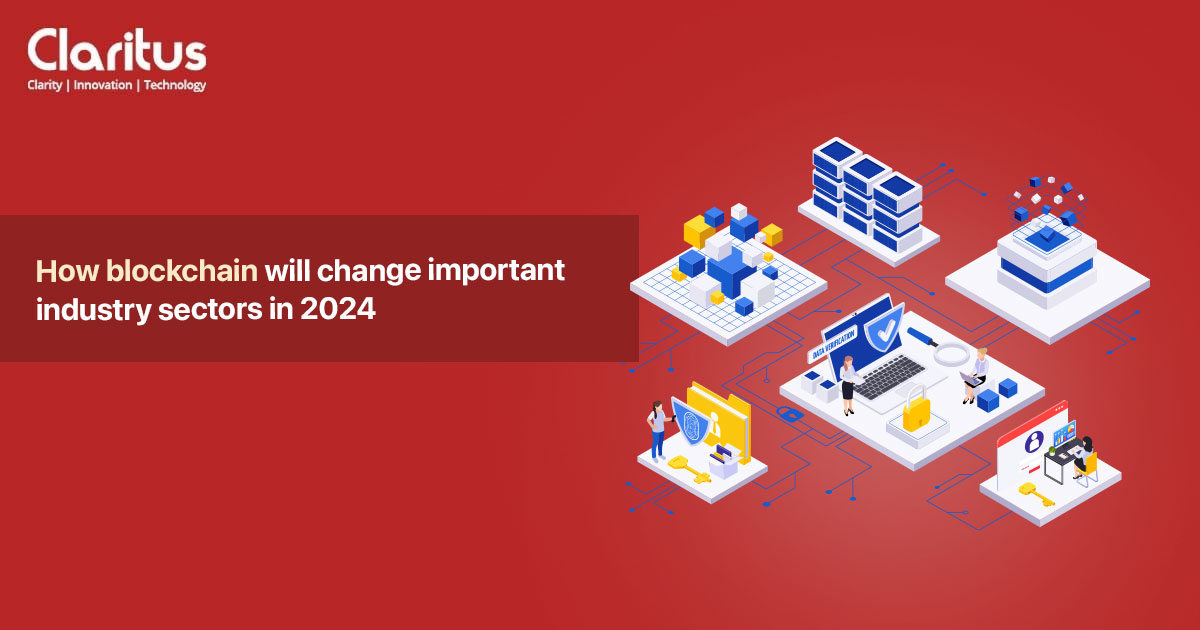How Blockchain Will Change Important Industry Sectors Forever in 2024

How Blockchain Will Change Important Industry Sectors Forever in 2024
A glimpse into the future of decentralized and distributed technologies
Blockchain is a revolutionary technology that enables peer-to-peer transactions without intermediaries, ensuring trust, transparency, and security. Blockchain has the potential to transform various industries, such as finance, healthcare, supply chain, energy, and more, by creating new business models, improving efficiency, and enhancing customer experience. In this blog post, we will explore how blockchain will change some of the most important industry sectors forever in 2024.
Finance
The finance sector is one of the most obvious and immediate beneficiaries of blockchain technology. Blockchain can enable faster, cheaper, and more secure cross-border payments, remittances, and settlements, as well as reduce fraud, errors, and intermediation costs. Blockchain can also facilitate the creation and exchange of digital assets, such as cryptocurrencies, tokens, stablecoins, and digital securities, which can offer more liquidity, accessibility, and innovation to the financial markets.
Moreover, blockchain can enable decentralized finance (DeFi), which is a movement that aims to provide open, permissionless, and transparent financial services, such as lending, borrowing, trading, and investing, without intermediaries or centralized authorities. DeFi can empower individuals and businesses to access a global and inclusive financial system, as well as create new opportunities for innovation and value creation.
Healthcare
The healthcare sector is another area where blockchain can have a significant impact. Blockchain can enable the secure and efficient sharing of medical data among various stakeholders, such as patients, doctors, hospitals, insurers, and researchers, while preserving privacy and consent.
Furthermore, blockchain can enable the creation and management of digital health identities, which can store and verify the health status and history of individuals, as well as facilitate the access to health services and benefits. Additionally, blockchain can enable the incentivization and monetization of health-related activities, such as fitness, wellness, and research, by using tokens, rewards, and micropayments.
Supply Chain
The supply chain sector is also a promising domain for blockchain applications. Blockchain can enable the tracking and verification of the provenance, condition, and quality of products and materials, from raw materials to finished goods, across multiple parties and locations, ensuring transparency, accountability, and efficiency.
Blockchain can also improve the coordination and collaboration among supply chain actors, such as suppliers, manufacturers, distributors, retailers, and consumers, by creating smart contracts, which are self-executing agreements that can automate transactions and processes based on predefined rules and conditions. Moreover, blockchain can enable the tokenization and fractionalization of physical assets, such as commodities, artworks, and real estate, which can increase their liquidity, accessibility, and value.
Energy
The energy sector is another field where blockchain can bring significant benefits. Blockchain can enable the creation and operation of decentralized and distributed energy networks, which can allow prosumers, who are both producers and consumers of energy, to generate, store, trade, and consume energy in a peer-to-peer manner, without intermediaries or centralized authorities.
Blockchain can also improve the efficiency and reliability of the energy grid, by enabling the integration and management of renewable energy sources, such as solar and wind, as well as the optimization and balancing of energy supply and demand, using smart meters, smart grids, and smart devices. Furthermore, blockchain can enable the incentivization and monetization of energy-related activities, such as generation, consumption, saving, and sharing, by using tokens, rewards, and micropayments.
Blockchain is a powerful and disruptive technology that can transform various industry sectors, by creating new possibilities, challenges, and opportunities. Blockchain can enable more trust, transparency, and security, as well as more efficiency, innovation, and value creation, in the digital economy. By 2024, we can expect to see more adoption and implementation of blockchain solutions across different domains, as well as more collaboration and integration among different blockchain platforms and ecosystems. Blockchain is not only a technology, but also a paradigm shift, that will change the world forever.
Let the experts at Claritus Consulting help your business with the custom crafted blockchain solutions.
